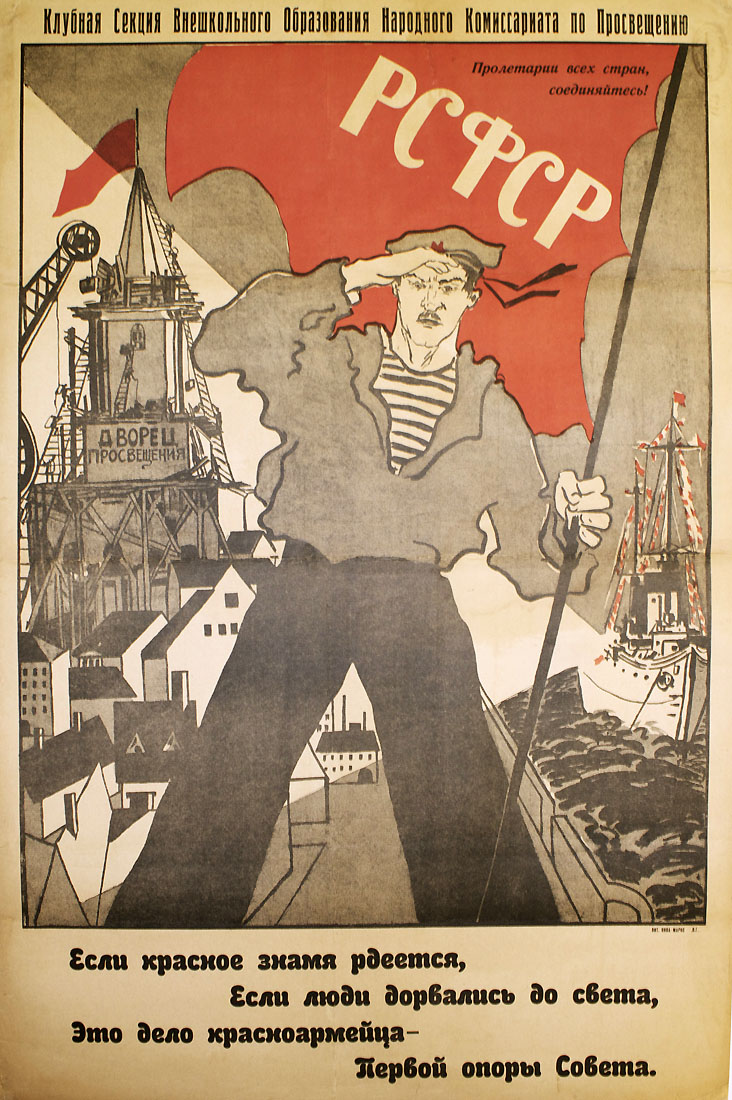
If the Red Flag appears, if people reach enlightenment, this is thanks to the Red Army soldier – the first support of the Soviet.
Número de Cartel: PP 717
Información sobre el cartel: [On flag] Workers of all countries, unite! RSFSR; [On building] Palace of Literacy; [At poster top] Club Section of the Extramural Department of the Commissariat of Public Education. The Worker's Club Sections of the People’s Commissariat was in Petrograd (Saint Petersburg) and the poster likely was issued during the unification period of the state's educational institutions; Poster text by Vladimir Vladimirovich Mayakovskii (1893-1930), Soviet poet, playwright, artist and actor.
Tamaño: 45x31.5
Tipo de cartel: Litografía
Fecha de publicación: 1919
Fuentes: Soviet Posters of the era of the Civil War 1918-1921 by B. S. Butnik-Siverskii (1960), page 256, poster 1120
En el catologo: PP 717 Military
Artista: Artist Unknown — неизвестный художник
The artist's name on the poster is not indicated. By assigning Artist Unknown to a poster it also could mean the artist used a chop mark whereby no signature is seen thus rendering the artist's identity anonymous.
Leer más...
Imprenta: A.F. Marks Lithography Workshop — Типография Адольф Фёдорович Марксъ
The A.F. Marks'' Partnership Artistic Printing Office was located in St. Petersburg at 29 Izmailovskii Avenue. Founded in 1881 by the printer and publisher, Adolf Fedorovich Marks (1838-1904), the firm published the weekly journal Niva in addition to other literature. In 1916, Moscow publishing mogul Ivan Sytin purchased a controlling interest in its ownership. The Partnership was nationalized (in late 1920) and placed under Gosizdat, the state publisher. In 1922, the printer was placed under Petropechat', a state-owned trust ...
Leer más...
Editorial: Narkompros (People’s Commissariat for Education) — Наркомпрос
The People's Commissariat for Education (Narkompros) was formed in 1918 and it encompassed the former Imperial Ministry of Public Education, the State Education Committee, and the former Palace Ministry (an entity that managed theaters, the Academy of Arts and the royal palaces). Overseeing Narkompros was the All-Russian Central Executive Committee (VTsIK). As the main educational branch of the government, Narkompros carried out a compliment of programs such as the combating of illiteracy, professional education, adult education, ...
Leer más...